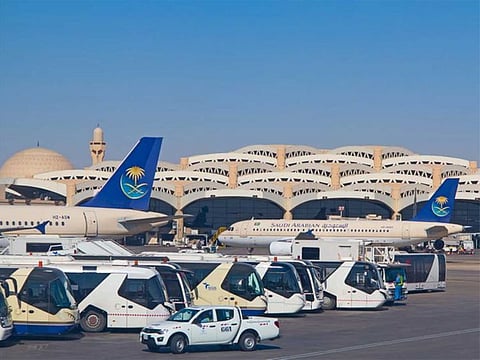GCC economies can absorb new competition from within – even another airline in Saudi Arabia
Whether its new airlines or free zones, Gulf economies will keep winning long-term

Also In This Package
Some GCC countries are set to establish new economic zones or venture into activities that their neighbours are already good at. This has raised questions about intensifying competition among Gulf states, especially on social media, where many without the professional qualifications are commenting on the topic. Others have tried to exploit these developments to give false impressions about the nature of the competition.
Here, we will try to approach this issue of inter-GCC competition, but shorn of the hype that usually accompanies any talk of this topic. First of all, it is necessary to understand the nature of the competition. It is a healthy phenomenon that pushes rivals towards doing better and contributing to developing their business landscape. This is standard practice in all economic blocs, including within the EU, and also exists among individual US states, where each tries to provide the best environment for local economies to get a boost.
Competition is a catalyst for creativity and development, without which, things tend to get monotonous. The competition within the Gulf is not something new; rather, it existed before the establishment of the GCC Council itself. It has played a positive role in the development of the GCC states, as it was aimed at collective advancement.
A tale of two airlines
For example, when Qatar Airways was founded in 1993, many people said the new company would affect Emirates airline. However, the results were impressive. The Emirates fleet has more than doubled since that time, exceeding 260 planes. As for Dubai Airport, it has developed over the past two decades to rank among the first on many parameters. The number of passengers has doubled to 80.6 million in 2019. In addition, three new UAE airlines have since been created - Etihad Airways, Air Arabia and flydubai. (More recently, there was the launch of budget carries based out of Abu Dhabi from Wizz Air and Air Arabia.)
At the same time, Qatar Airways developed to transform the Gulf region into one of the most important air transport hubs in the world, benefiting all GCC economies.
Space for more
The same concerns are now being raised by non-specialists after Saudi Arabia announced the establishment of a new air transport company and obligated foreign companies to open regional offices in Riyadh. What are the consequences? The Saudi move will certainly result in positive outcomes for all the GCC states, as evidenced by the historical experience we referred to above. But how?
First, the regional offices are basically administrative offices. In addition to the existing regional ones in the UAE, Bahrain or Qatar, complementary regional offices will also open in Riyadh. This is indeed a positive because the operations will be concentrated in the cities that provide the best and finest environment for businesses to grow further. At present, there are companies with regional offices in one city and their main operations in another.
As for the new Saudi airline, it will not disadvantage existing airlines, but rather it will create more benefits for the Gulf’s air transport sector. Why am I drawing such a conclusion?
According to the International Air Transport Association (IATA), the number of passengers will double over the next two decades to 7.8 billion, compared to 4 billion in 2019, and air freight operations will double, meaning that the expected growth will require twice the capacity of airports and aircraft. But how will the capacity be doubled? There will be two options, first, existing airports and facilities will need to go in for expansion and, second, new facilities and airlines will be set up, including in Saudi Arabia.
All the talk about the expected negatives is meaningless. For the strong of will, new competition will push them to develop and provide even better services. This can be clearly seen in the quality of the services offered at Gulf airports. This brings to our mind what His Highness Sheikh Mohammed bin Rashid Al Maktoum, UAE Vice-President and Prime Minister and Ruler of Dubai, once said about new entrants to the marketplace: "Welcome to the competition..."
Mohammed Al Asoomi is a specialist in energy and Gulf economic affairs.
Sign up for the Daily Briefing
Get the latest news and updates straight to your inbox







